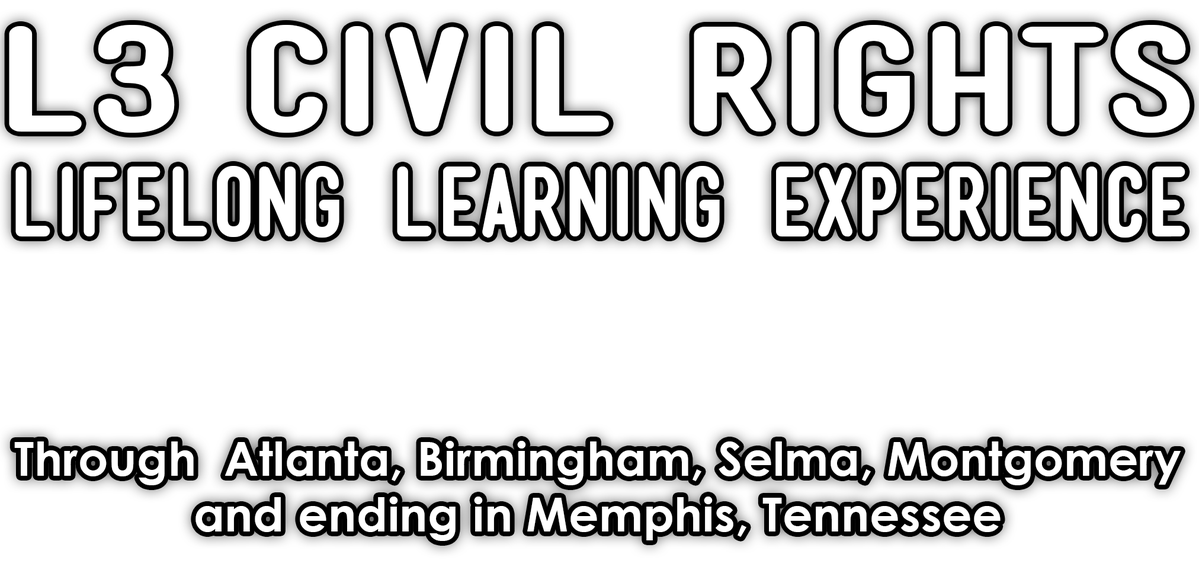The aftermath of the Birmingham marches in 1963 shocked the country with images of vicious police dogs and fire hoses used to quell peaceful protesters. The images of children being attacked by police propelled the issue of segregation into the national spotlight.
Join L3 as we travel through Atlanta, Birmingham, Selma, Montgomery, and ending in Memphis, the pivotal sites of the Civil Rights Movement.
We'll study how things were, how things are now, and what we hope for the future.
Agenda
Day 1: Arrival & Introductions - Tuesday, June 3
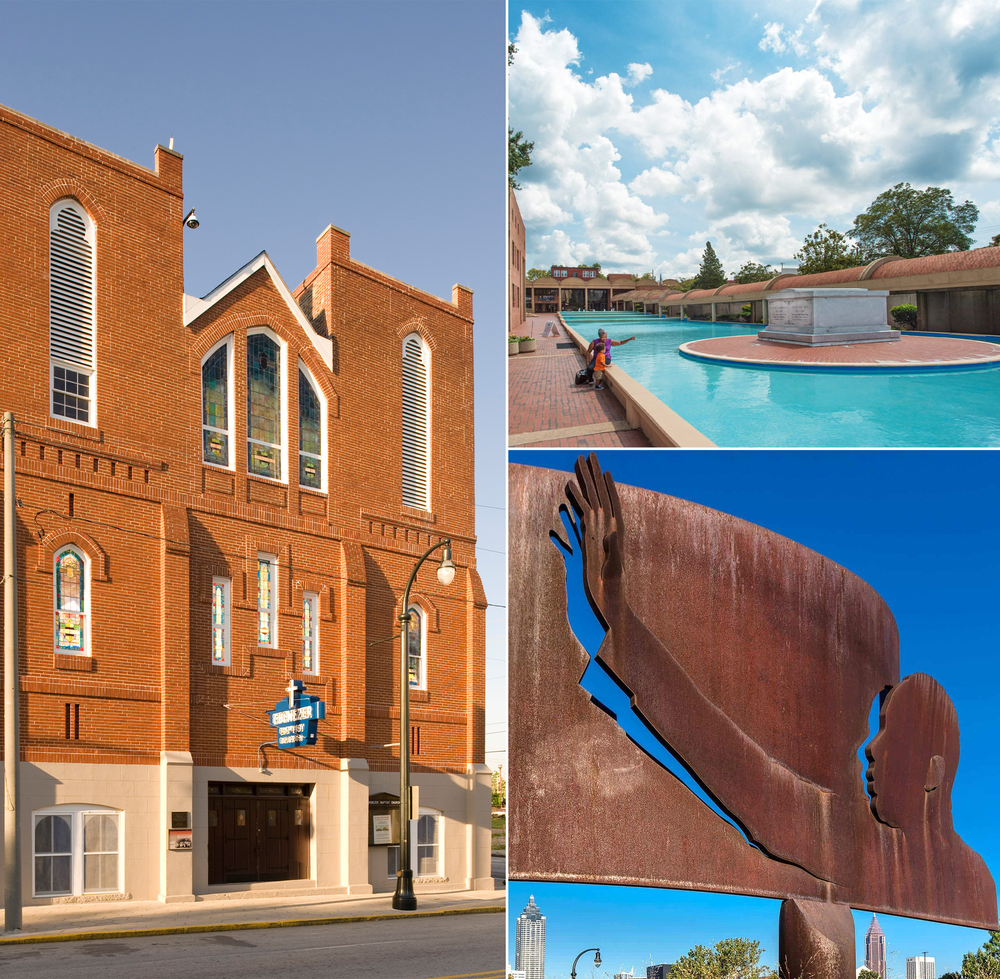
Arrival in Atlanta: Arrive in the vibrant city of Atlanta by late morning.
Exploring Atlanta:
- Visit the King Center and explore the historic "Sweet Auburn" neighborhood.
- Discover the legacy of Ebenezer Baptist Church, both Old and New sanctuaries.
- Enjoy a delightful lunch at a local restaurant.
- Experience a contemporary art exhibit highlighting civil rights themes.
Transfer to Montgomery, AL: After a day of exploration, transfer to Montgomery.
Group Welcome Dinner: Savor a warm welcome dinner at Central Restaurant.
Overnight: Stay at The Renaissance Hotel, Montgomery
Day 2: Montgomery in Focus - Wednesday, June 4
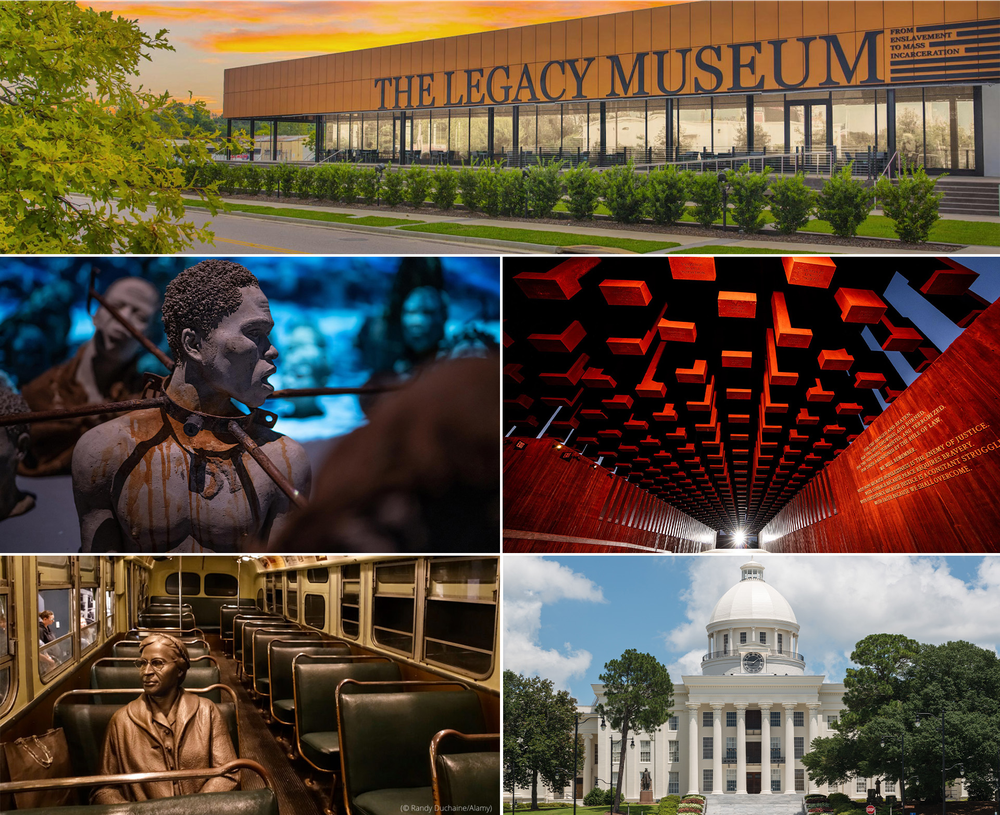
Key Sites in Montgomery:
- Visit the EJI Legacy Museum and National Memorial.
- Explore the Rosa Parks Museum and Children's Museum.
- Lunch at a local favorite.
Historical Stops:
- Stop outside the Alabama State Capitol and the First White House of the Confederacy.
Evening Activities:
- Dinner in downtown Montgomery.
Overnight: Stay at The Renaissance Hotel, Montgomery.
Day 3: Road to Selma - Thursday, June 5
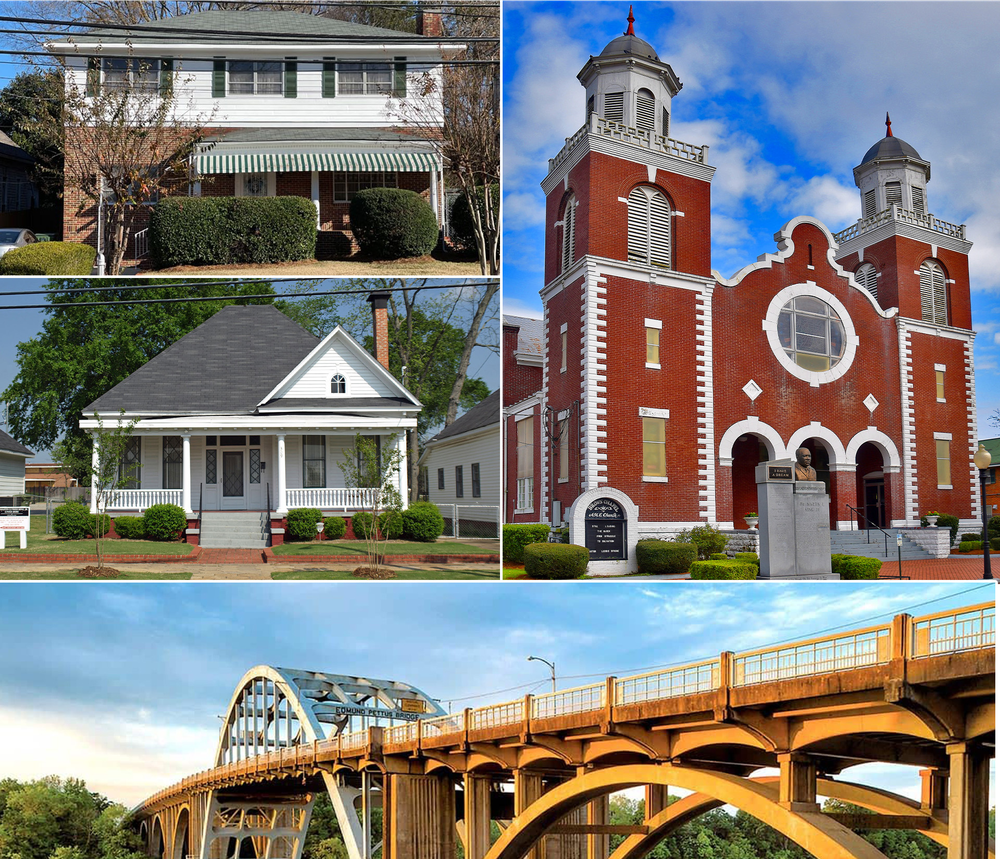
Morning Visits:
- Tour the Harris House and Dexter Parsonage.
Journey to Selma:
- Drive to Selma with a stop at the Viola Liuzzo Memorial.
- Visit a local church in Whitehall and enjoy lunch catered by the community.
- Stop at Brown AME Church.
- Walk the historic Edmund Pettus Bridge.
Late Afternoon Drive: Transfer to Birmingham for dinner.
Overnight: Stay at The Elyton Hotel, Birmingham.
Day 4: Birmingham - Friday, June 6
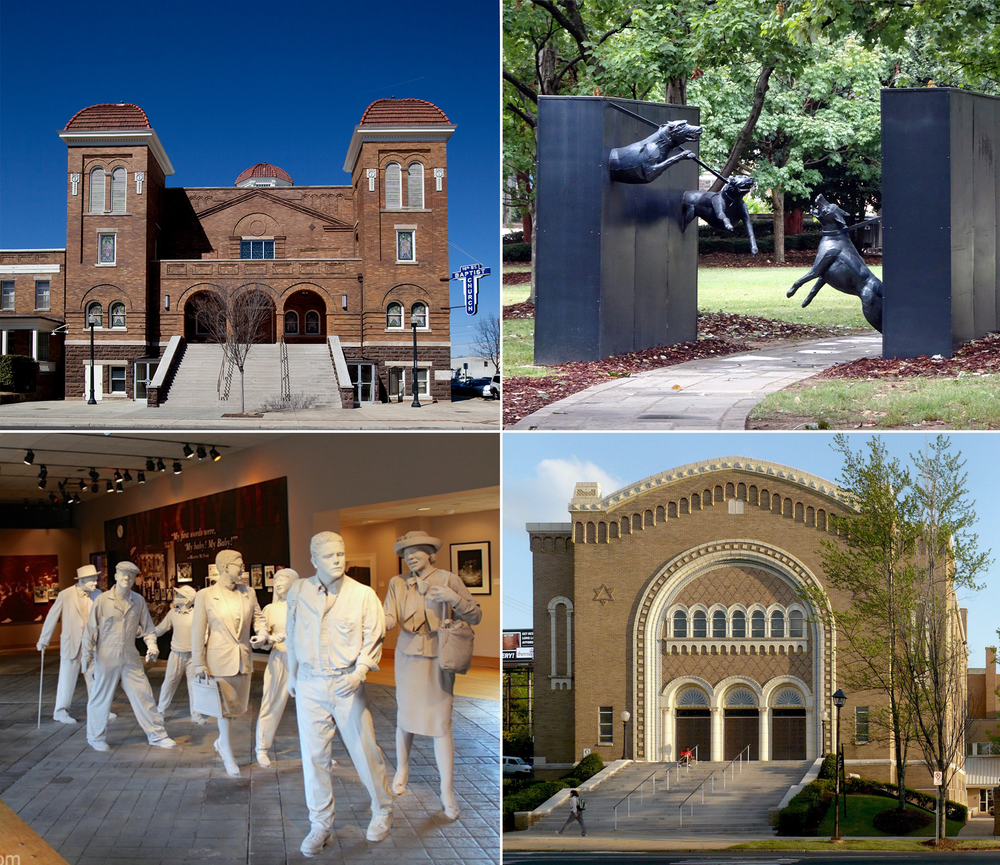
Exploring Birmingham:
- Visit the 16th Street Baptist Church and Kelly Ingram Park.
- Discover the Birmingham Civil Rights Institute.
- Lunch with local housing rights advocates.
Afternoon & Evening:
- Attend a workshop at Temple Beth El focusing on Birmingham Civil Rights.
- Evening tasting tour with a local beer-brewing entrepreneur.
- Dinner with the group.
Overnight: Stay at The Elyton Hotel, Birmingham.
Day 5: Graceland - Saturday, June 7
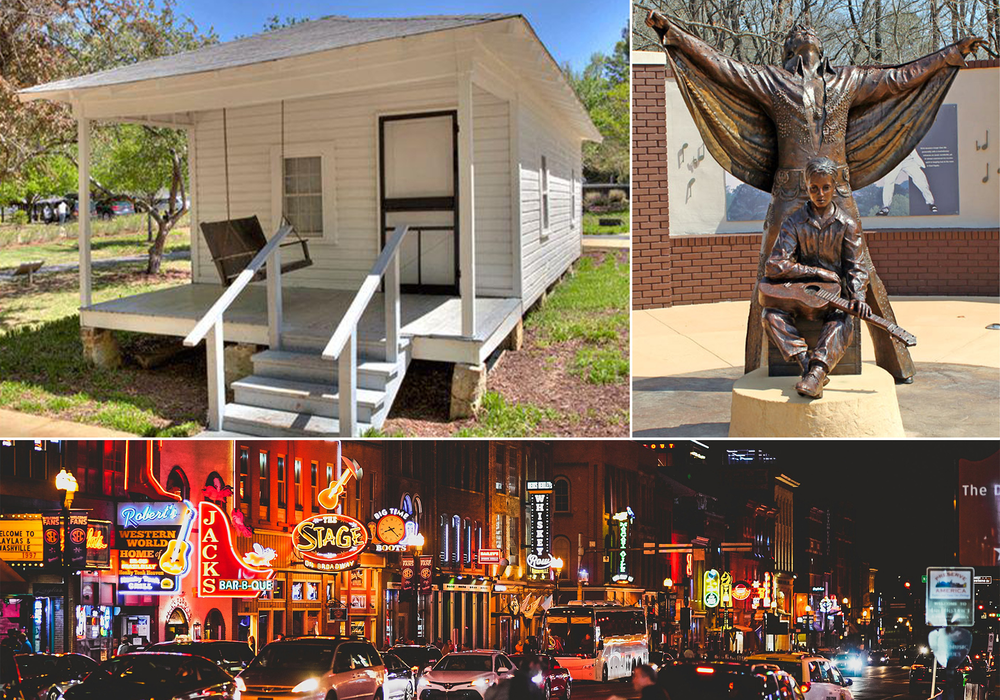
Heading to Memphis:
- Journey towards Memphis with a stop in Tupelo.
- Explore the Elvis Presley Birthplace & Museum and delve into the complex relationship to Gospel music.
- Lunch en route to Memphis.
Arrival in Memphis: Check in and unwind at the hotel.
Evening Dinner: Enjoy a group dinner.
Overnight: Stay at The Westin Memphis Beale Street.
Day 6: Memphis - Sunday, June 8
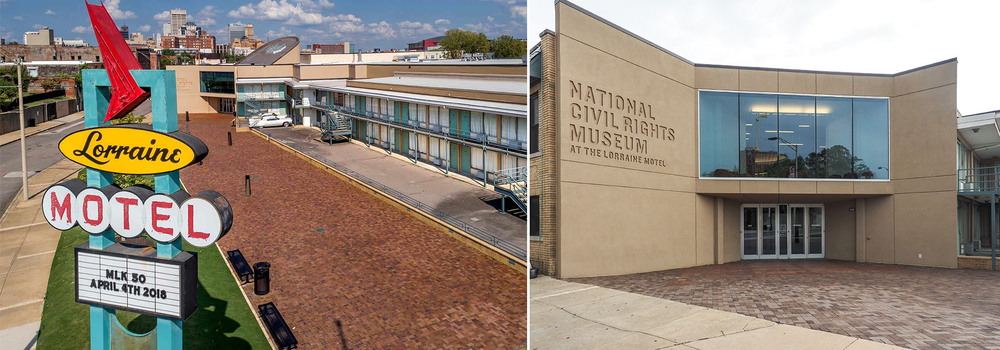
Memphis Tour:
- Visit the National Civil Rights Museum at the Lorraine Motel.
Departure: Transfer to the airport for your departing flights.
Our Guide
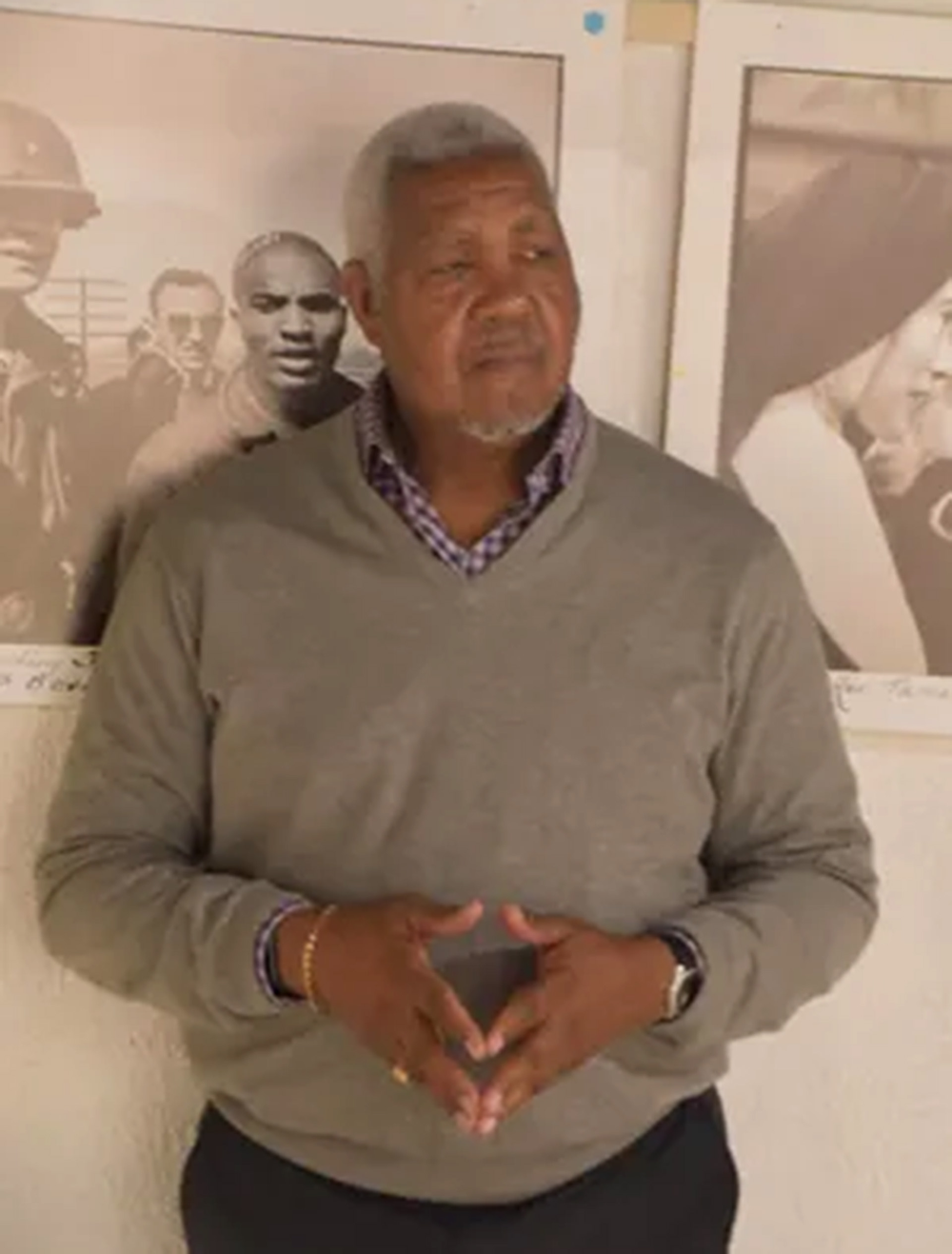
George Shinhoster came of age in the civil turbulence of the 1960s. A native of Savannah, Georgia, he was one of the first African Americans to desegregate a high school and college there. He worked with the Chatham County Crusade for Voters to register black citizens to become voters. In the heat of the civil rights struggle, Mr. Shinhoster worked with the Rev. Dr. Martin Luther King Jr. and the Southern Christian Leadership Conference as a field organizer.
After joining the SCLC, he endured being arrested 19 times in pursuit of voting rights and equal access to public accommodations for black people throughout the South. He marched with Dr. King, experiencing first hand his leadership, commitment, and drive in the midst of the struggle. Later, Mr. Shinhoster worked with the YMCA for 42 years as an executive in Georgia, South Carolina, Washington state, and North Carolina, before retiring as president and CEO of the Newark YMCA in New Jersey in 2011. He also was a national trainer and facilitator for the YMCA.
Program Highlights
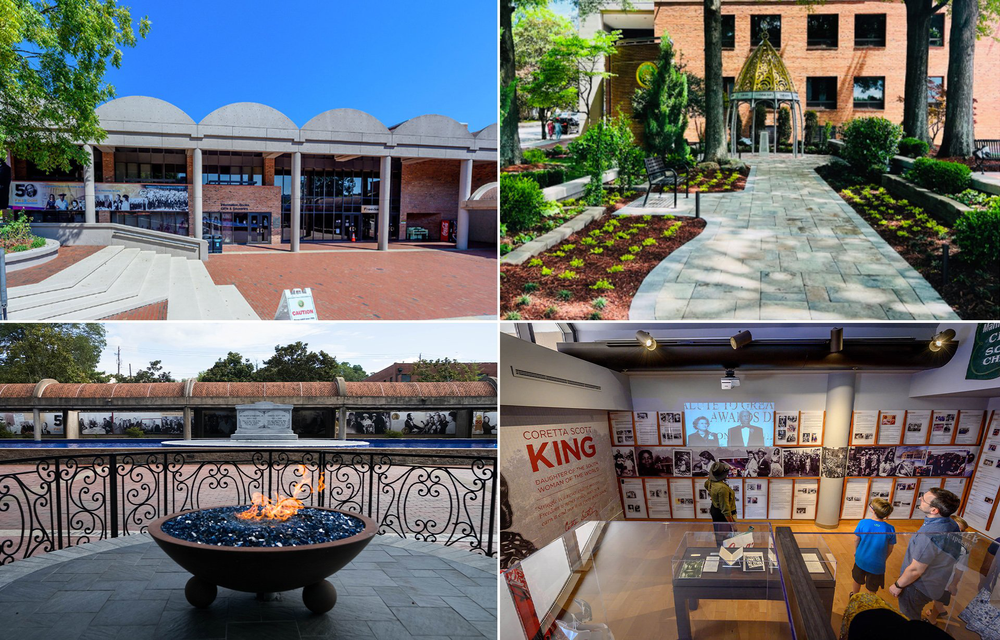
King Center
The Martin Luther King Jr. Center for Nonviolent Social Change, commonly known as the King Center, is a non-profit organization in Atlanta, Georgia. Founded in 1968 by Coretta Scott King, it promotes Dr. King's philosophy of nonviolence and social justice. The center includes King's birth home, a memorial tomb, and Freedom Hall, which hosts various exhibits and events.
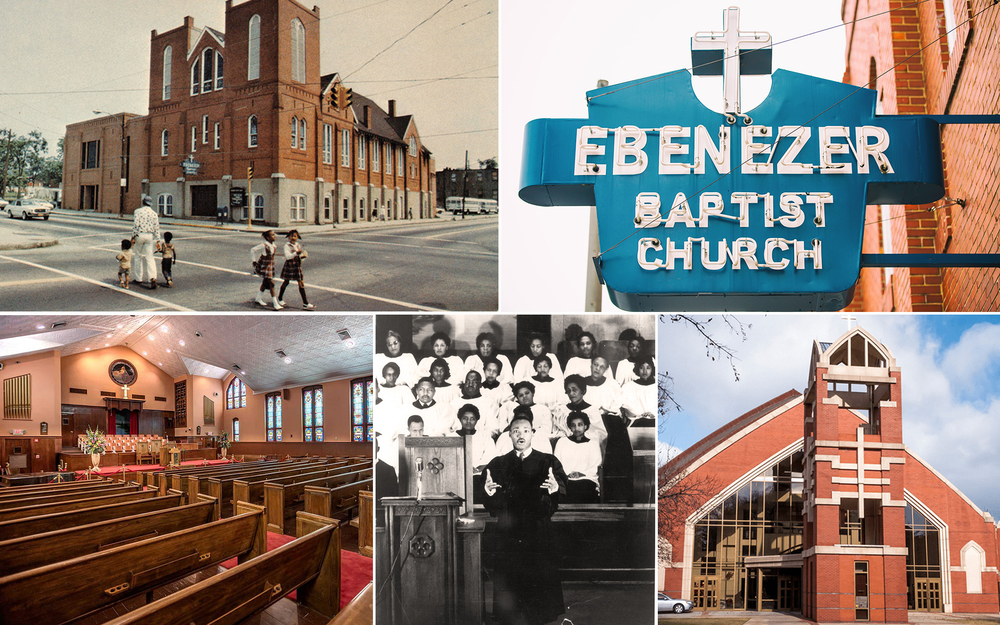
Ebenezer Baptist Church
Ebenezer Baptist Church is a historic church in Atlanta, Georgia, within the Martin Luther King Jr. National Historical Park. Founded in 1886, it was the church where Dr. Martin Luther King Jr. and his father, Martin Luther King Sr., preached. The church played a significant role in the civil rights movement and continues to be a center for community and social justice activities.
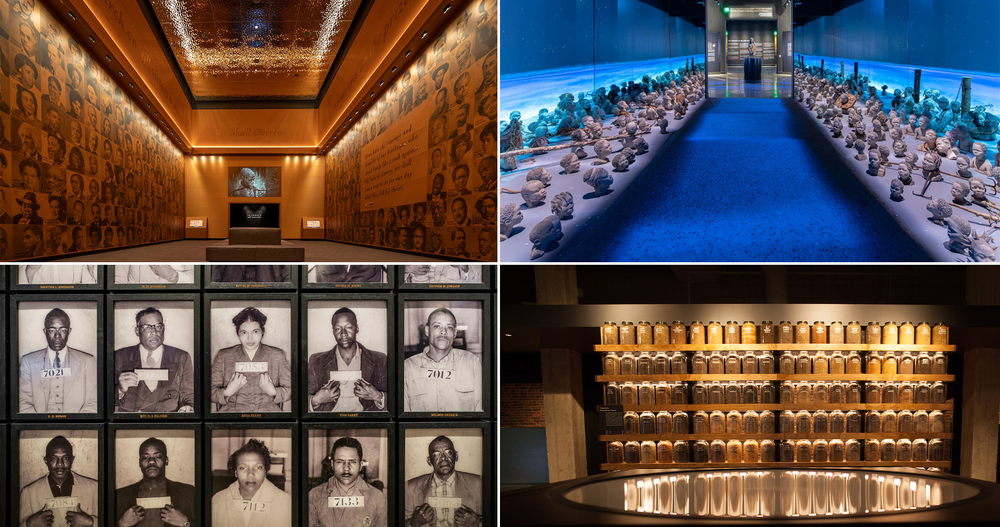
EJI Legacy Museum
The Equal Justice Initiative (EJI) Legacy Museum is located in Montgomery, Alabama. It explores America's history of racial injustice, from slavery to mass incarceration. The museum aims to educate visitors about the legacy of racial violence and the ongoing struggle for civil rights.
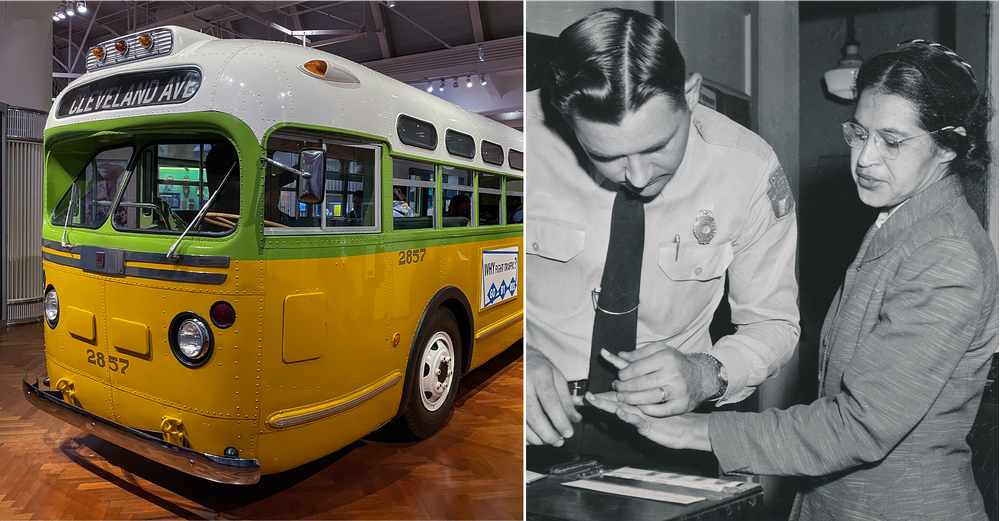
Rosa Parks Museum
The Rosa Parks Museum is located in Montgomery, Alabama. It commemorates the life of Rosa Parks, a civil rights icon who refused to give up her seat on a bus, sparking the Montgomery Bus Boycott. The museum features exhibits about Parks' life, the boycott, and the broader civil rights movement.
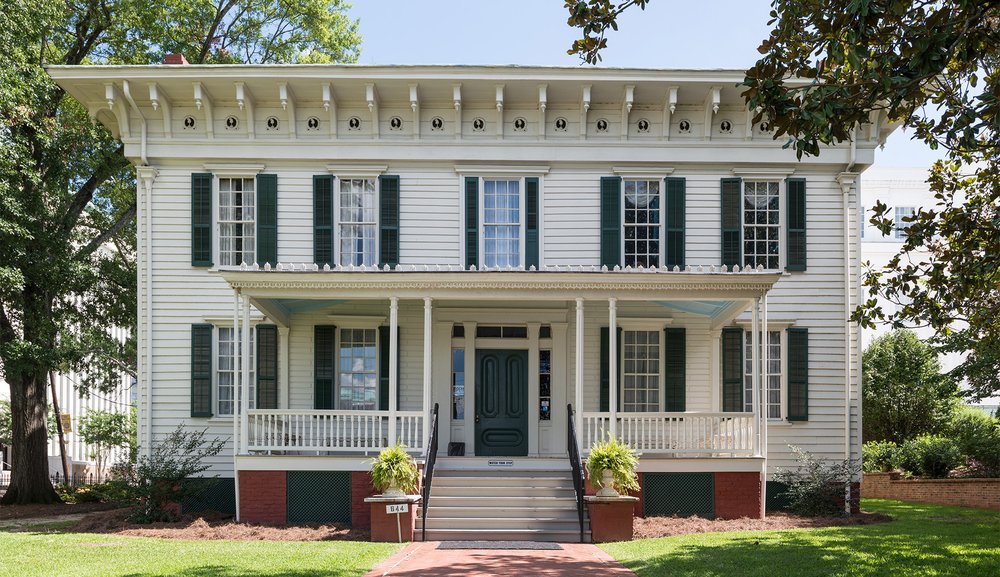
First White House of the Confederacy
The First White House of the Confederacy is a historic house museum in Montgomery, Alabama. It served as the executive residence of President Jefferson Davis and his family during the Civil War. The museum offers exhibits on the history of the Confederacy and the Civil War era.
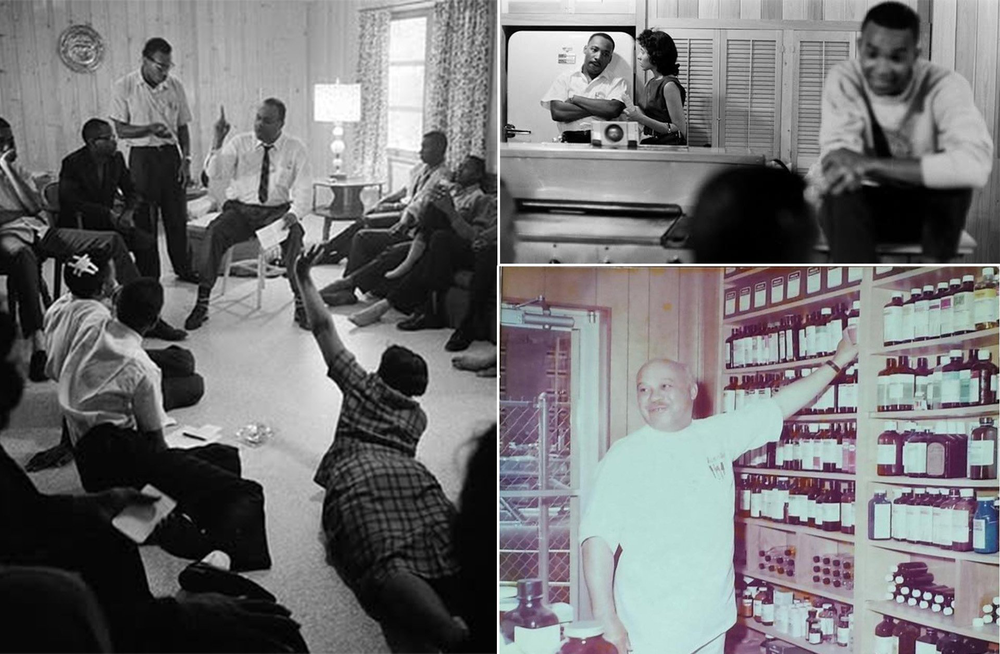
Harris House
The Harris House is a historic residence on South Jackson Street in Montgomery, Alabama. The house is notable for associating with Dr. Richard Harris, a prominent African-American physician and community leader. The house has been preserved to reflect its historical significance. It offers visitors a glimpse into the life of Dr. Harris and the African-American community in Montgomery during the early 20th century.
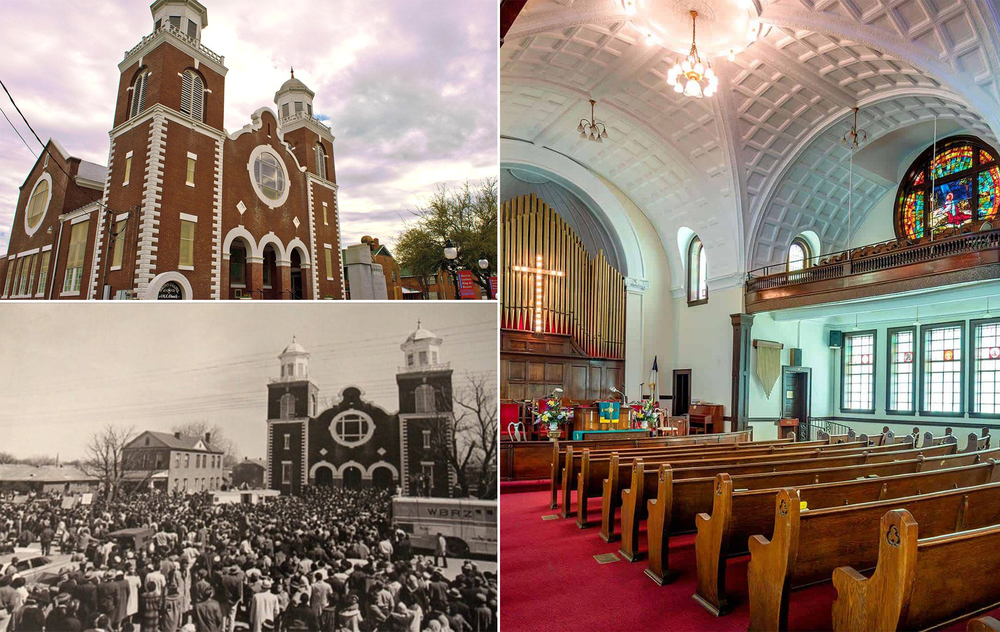
The Brown Chapel African Methodist Episcopal Church
The Brown Chapel African Methodist Episcopal (AME) Church is a historic African American church in Selma. The chapel and members of the congregation played a pivotal role in the civil rights movement, and the March 1965 marches from Selma to Montgomery helped bring attention to the movement and prompt passage of the Voting Rights Act of 1965.
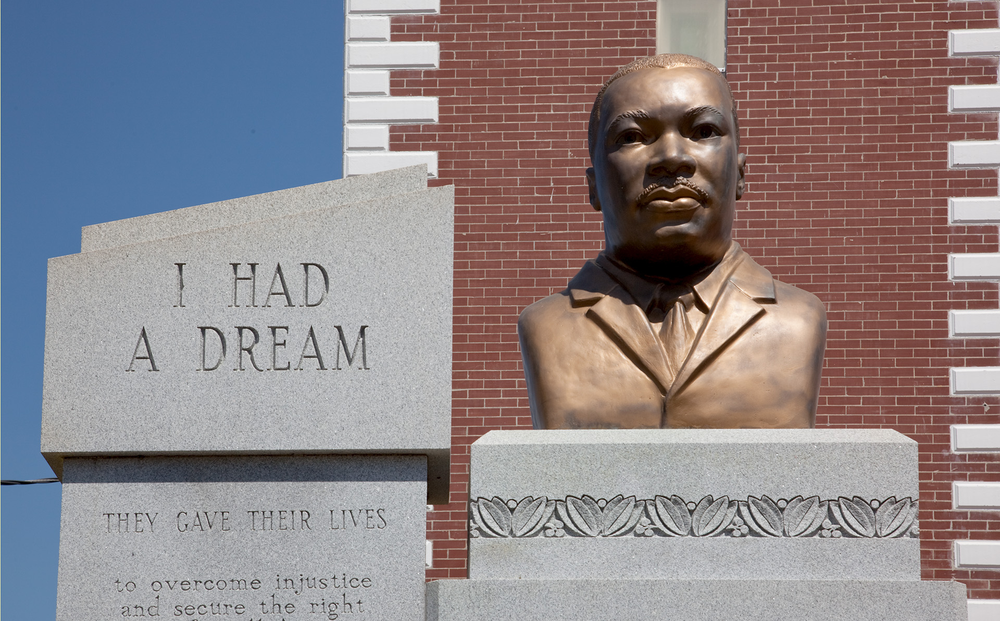
King Monument in Selma
This granite monument features a Martin Luther King Jr. bust and lists James Reeb, Viola Gregg Liuzzo, and Jimmie Lee Jackson, who gave their lives during the movement. The Civil Rights Freedom Wall, a black marble memorial erected in 2005 on the other side of the church, lists the names of individuals involved in the struggle from 1950 to 2000. The church is still active today.
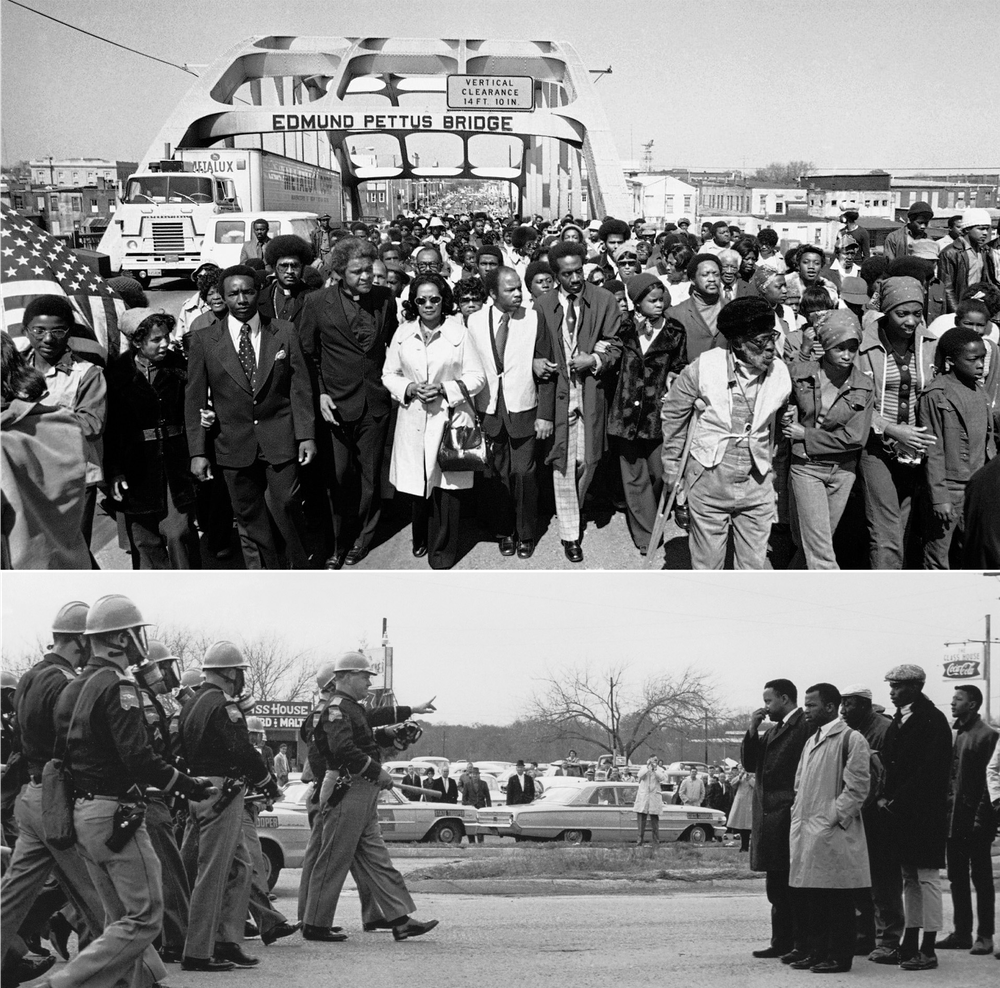
Edmund Pettus Bridge
The bridge is named after Edmund Pettus, a former Confederate brigadier general and U.S. senator who was also a leader of the Ku Klux Klan.
The bridge is most famous for its role in the civil rights movement, particularly the "Bloody Sunday" events on March 7, 1965. On that day, civil rights activists attempted to march from Selma to Montgomery to advocate for voting rights, but law enforcement officers violently attacked them as they crossed the bridge. The images of this brutal confrontation helped galvanize national support for the civil rights movement and led to the passage of the Voting Rights Act of 1965.
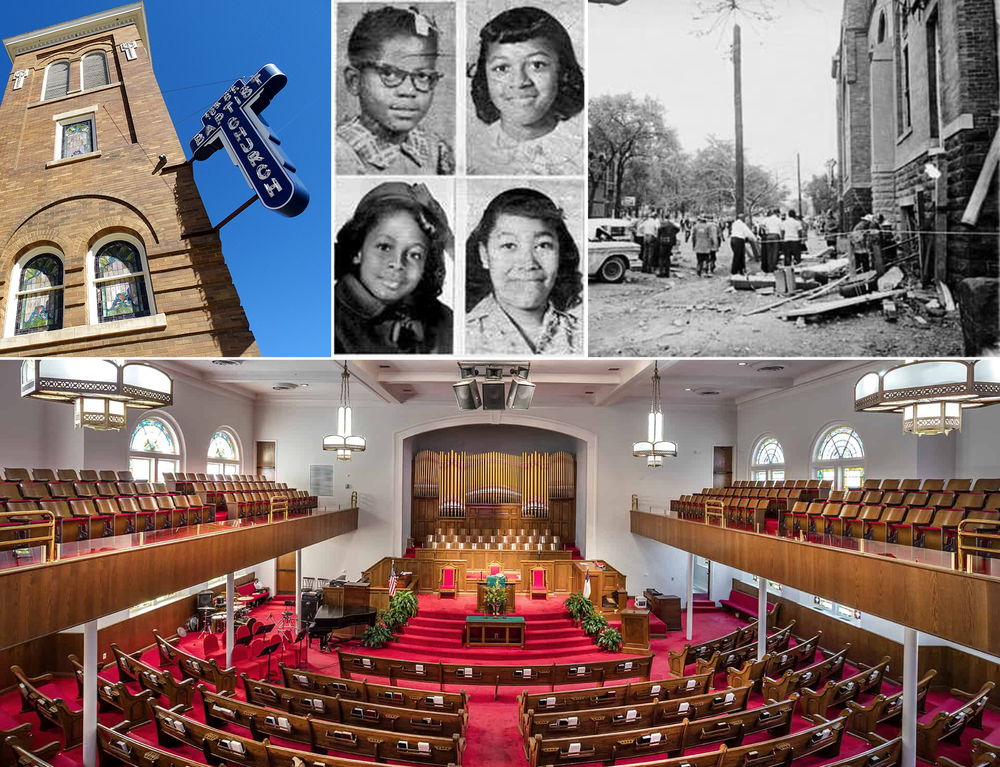
16th Street Baptist Church
The church gained national and international attention on September 15, 1963, when members of the Ku Klux Klan bombed it. The explosion killed four young girls—Addie Mae Collins, Denise McNair, Carole Robertson, and Cynthia Wesley—and injured many others. This tragic event became a pivotal moment in the civil rights movement, drawing widespread outrage and helping to galvanize support for civil rights legislation. It has been designated a National Historic Landmark and is part of the Birmingham Civil Rights District.
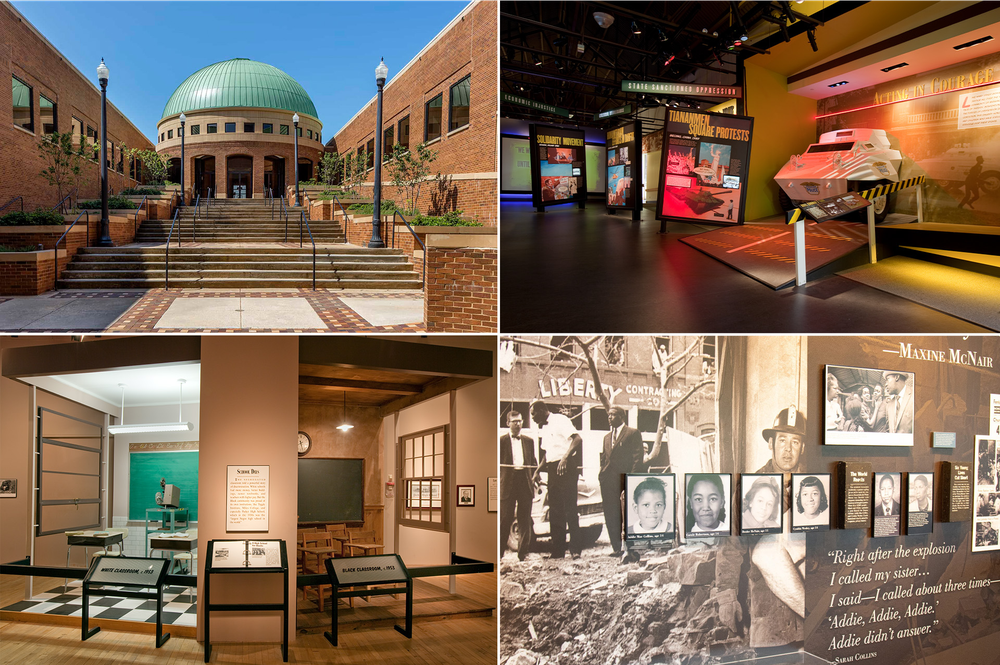
Birmingham Civil Rights Institute
The Birmingham Civil Rights Institute (BCRI) is a cultural and educational research center in Birmingham, Alabama. It is part of the Birmingham Civil Rights National Monument and an affiliate of the Smithsonian Institution.
The institute features a variety of exhibits and programs that explore the history of the civil rights movement, with a particular focus on the events of the 1963 Birmingham Campaign.
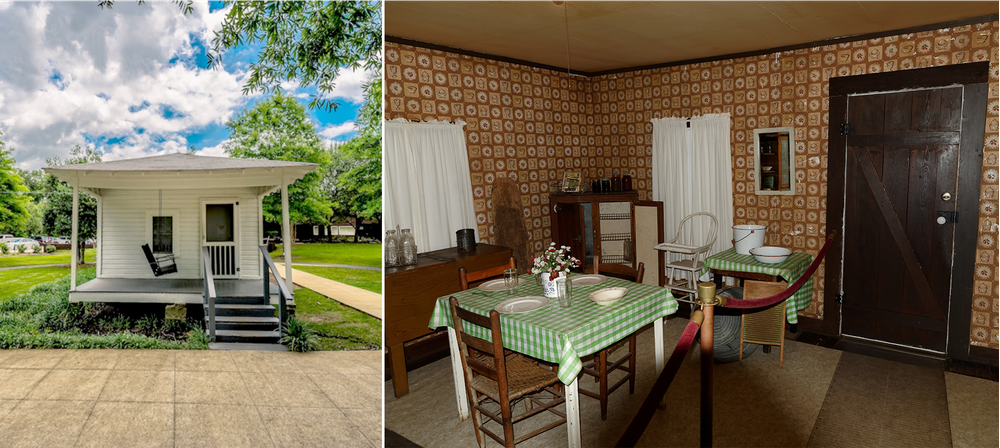
Elvis Presley Birthplace
Tupelo, Mississippi is best known as the birthplace of Elvis Presley. The Elvis Presley Birthplace includes his birth home, a museum, and the Assembly of God church, where he sang as a child. The famous "Becoming Elvis" statue is also located here.
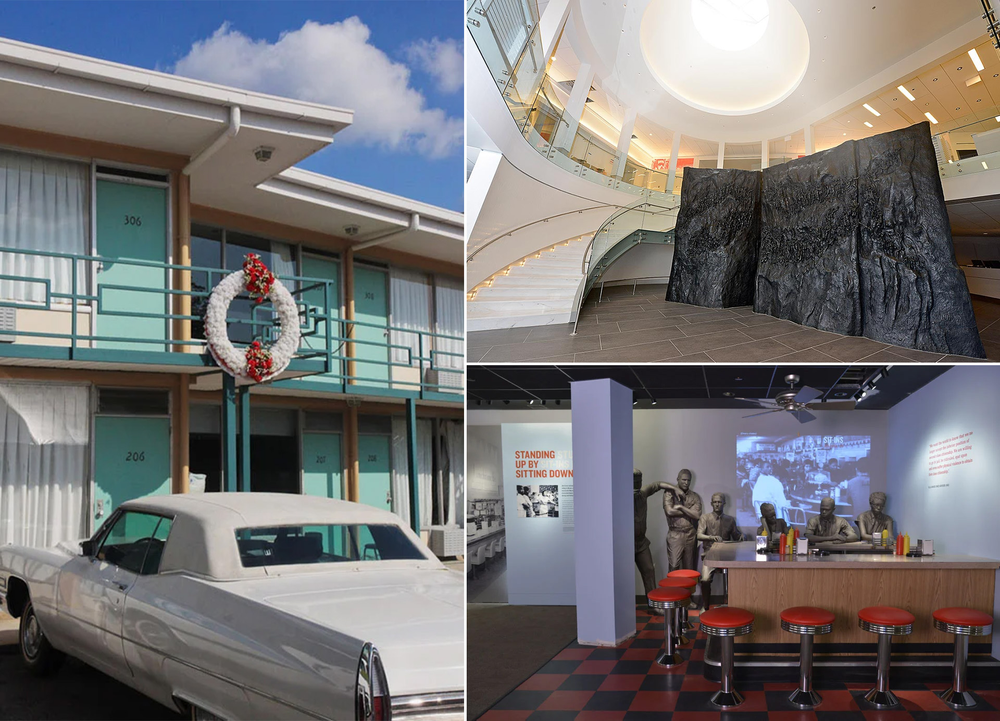
National Civil Rights Museum
The National Civil Rights Museum is located at the Lorraine Motel in Memphis, where Dr. Martin Luther King Jr. was assassinated on April 4, 1968. The museum is dedicated to chronicling the American Civil Rights Movement and its impact on society. It is a powerful and emotional experience, which offers a deep dive into the struggles and triumphs of the civil rights movement and serves as a reminder of the ongoing fight for equality and justice.
Accommodations

Renaissance Montgomery Hotel & Spa at the Convention Center
This luxury hotel is located in downtown Montgomery, Alabama and offers a full-service spa, rooftop pool, fitness center, and multiple dining options. The hotel is conveniently located near the Montgomery Performing Arts Center, Maxwell Air Force Base, and the Legacy Museum.
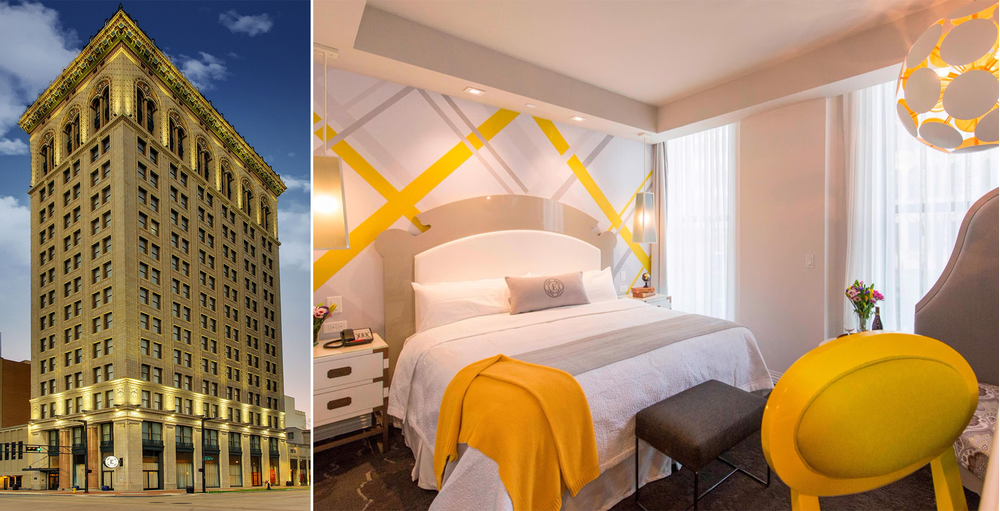
Elyton Hotel Autograph Collection
This boutique hotel in downtown Birmingham, Alabama on the famous "Heaviest Corner on Earth," at 1st Avenue North and 20th Street 2. The hotel is housed in the historic Empire Building, which was built in 1909 and is a celebrated architectural landmark.

Westin Memphis Beale Street
This luxurious hotel in the heart of downtown Memphis, Tennessee is a AAA 4-Diamond hotel known for its elegant, newly renovated guest rooms and suites. The hotel is steps away from the vibrant Beale Street Entertainment District, the Memphis Rock 'n' Soul Museum, and AutoZone Park.
Registration

Early registration
$ 4,750 per person, double occupancy
$ 5,550 per person, single occupancy
Early registration ends on March 31, 2025
A deposit of $1,000 holds your spot and secures an early registration discount.
Registration after March 31, 2025
$ 5,250 per person, double occupancy
$ 6,050 per person, single occupancy
Registration includes all meals, group activities, and accommodations beginning at 1 p.m. on June 3, 2025, through 11 a.m. on June 8, 2025.
L3 Foundation, a 501c3 charitable nonprofit, will make donations to nonprofits in the D.C. area as a result of this event. A portion of your registration fee may be tax deductible if your tax professional advises it. Registrants will receive a tax receipt listing the fair market value of this event after the trip is completed.
Travel Information
Book your travel to arrive in Atlanta, Georgia, in time for our opening activities at 1p.m.. on June 3, 2025, and plan to depart after 1 p.m. from Memphis, Tennessee, on June 8, 2025.
